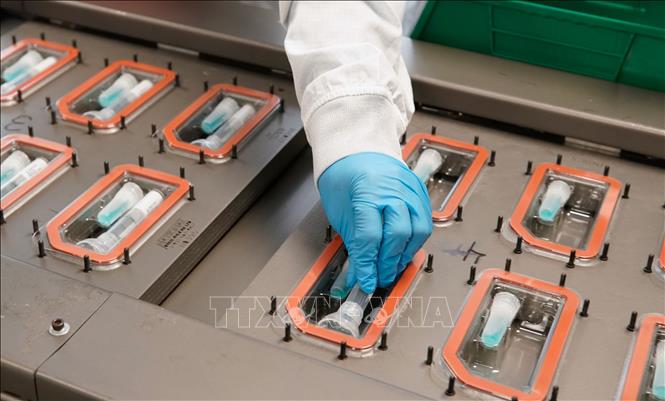Research on methods to determine immunity to COVID

Studies have shown that the amount of antibodies produced by either of these factors will gradually decrease over time. Immunocompromised individuals may not respond adequately to vaccines and may be susceptible to infection, particularly in light of the emergence of the highly contagious Omicron variant of the highly contagious SARS-CoV-2 virus. As the mask-wearing rule is lifted and normal life resumes, a testing method to determine immunity is thought to be important in helping to assess an individual’s risk.
According to CNN, one of the assessment of immunity is a blood test to measure the level of antibodies in each person’s body. Updated data by the US Centers for Disease Control and Prevention (CDC) obtained from blood donors shows that as of December 2021, about 95% of US citizens 16 years of age and older have antibodies to the vaccine. COVID-19. However, the Food and Drug Administration (FDA) considers that testing for antibodies is not relevant in calculating immunity to COVID-19. Virologist Mehul Suthar at Emory University’s Emory Vaccine Center also said there was no such correlation.
While a study of vaccines by Moderna showed that people who received the vaccine had higher levels of antibodies after vaccination and had a lower risk of contracting COVID-19, experts emphasized not all antibodies. are produced equally. Only a small amount of antibodies are considered “neutralizing antibodies” that have the ability to prevent the SARS-CoV-2 virus.
The study’s lead author, Professor Peter Gilbert specializing in vaccines and infectious diseases at the Fred Hutchinson Cancer Research Center, said neutralizing antibodies were a strong correlation to fighting infection. SARS-CoV-2 and its variants.
Meanwhile, the CDC cites a study that found antibody levels in vaccinated people decline faster than in people who already have COVID-19. This is why hybrid immunity generated both from vaccination and after infection seems to have a longer lasting effect. Marion Pepper, an associate professor of immunology at the University of Washington, says scientists understand that people with “hybrid” immunity have a better defense against disease. However, they are still working to find a solution to the parameter related to “hybrid” immunity.
Others say that to measure immunity, the test should involve assessing T cells. If the virus is able to “dodge” antibodies, the T cells can produce a response. strong protection. Besides antibodies and T cells, B cells also contribute to disease prevention. According to Associate Professor Pepper, memory B cells are cells that can be reactivated to produce antibodies. It usually doesn’t do that unless the T cell sends a signal to ask. So it will be really important to study T cells to understand this defense mechanism. However, she stressed that until now it has been difficult to determine the concentration of these cells because they are very complex and require a long time to study.
at Blogtuan.info – Source: baotintuc.vn – Read the original article here

